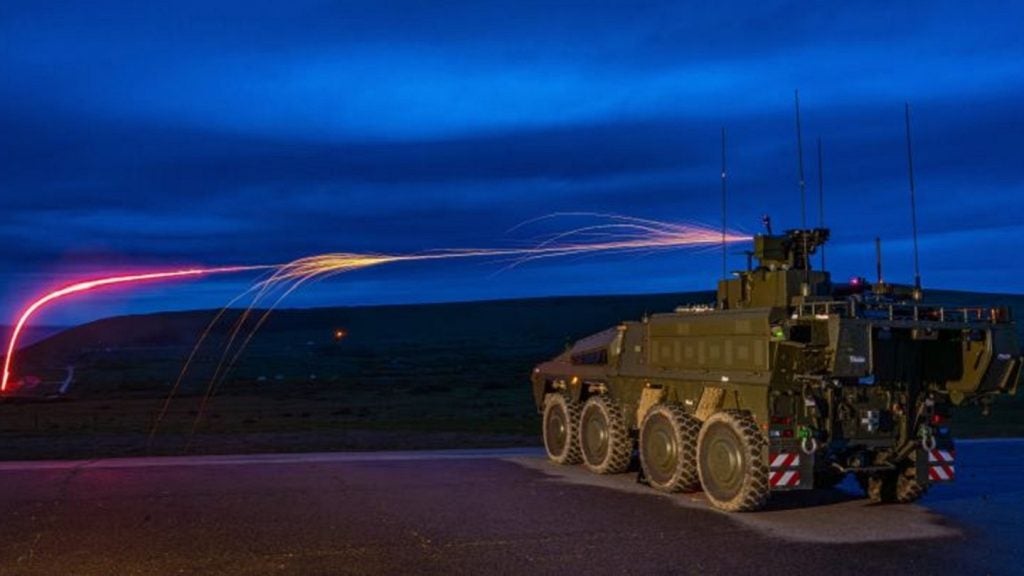
The US State Department approved two significant foreign military sales (FMS) to Taiwan on 18 June 2024, reinforcing its commitment to the nations defence capabilities amidst rising regional tensions. The combined value of these sales amounts to an estimated $360.2m.
The Taipei Economic and Cultural Representative Office (TECRO) in the United States made the requests for these acquisitions, and the approvals were performed in separate FMS cases put forward by the Defense Security Cooperation Agency (DSCA).
Switchblade 300 Loitering Missile System
The first sale involves the Switchblade 300 Anti-Personnel and Anti-Armor Loitering Missile System, estimated at $60.2m. TECRO has requested 720 Switchblade 300 (SB300) All Up Rounds (AURs), including 35 fly-to-buy AURs, and 101 SB300 fire control systems. Additional non-major defence equipment in the package includes spares, operator manuals, training, logistics support, and various technical services from the US Government and the principal contractor AeroVironment.
This sale aims to bolster Taiwan’s defensive capabilities by providing modern and efficient systems capable of responding to both personnel and armour threats. The DSCA asserts that this transaction aligns with US policy, enhancing the Taiwan’s ability to maintain a credible defensive posture, and contribute to regional stability.
Implementation of the sale will require the deployment of eight US Government and two contractor representatives to support equipment fielding, training, and program management over a five-year period. The DSCA assured that this sale would not adversely affect US defence readiness.
ALTIUS 600M-V Unmanned Aerial Vehicles
The second sale, significantly larger at $300m, includes the ALTIUS 600M-V Unmanned Aerial Vehicles (UAVs). TECRO has requested up to 291 ALTIUS 600M-V systems, which consist of UAV loitering munitions equipped with extensible warheads and electro-optical/infrared cameras. The package also includes inert training UAVs, launch systems, trailers, ground control systems, and comprehensive support including spares, battery chargers, and various forms of technical assistance.
Anduril, based in Atlanta, Georgia, is designated as the principal contractor for this sale. Similar to the Switchblade 300 system, this sale is intended to enhance Taiwan’s ability to address current and future threats, ensuring the island’s forces can absorb and effectively utilise the new equipment.
For this sale, five US Government representatives and twelve contractor representatives will be assigned to assist with equipment fielding, training, and program management over a two-year period. The DSCA reiterated that there would be no negative impact on US defence readiness from this transaction.
Strategic and Regional Implications
Both sales are seen as critical to supporting Taiwan’s ongoing efforts to modernise its military capabilities and sustain a robust defensive stance. These transactions also reflect US strategic interests in maintaining regional stability and military balance, contributing to the economic and political steadiness in the Asia-Pacific.
The acquisition of the systems could be interpreted as a continuation of the ‘porcupine strategy‘ that drew attention during the early months of the war in Ukraine. Taiwan, in preparation for a potential invasion by China, purchased HIMARS in September 2022, following lessons learned from the faltering invasion by Russia into Ukraine.
Ukraine demonstrated an aptitude for asymmetric warfare that utilised long-range precision strike capabilities, along with man-portable surface-to-air missile systems and loitering munitions. This combination of relatively inexpensive systems, and high impact mobile stand-off weapons, allowed for a greater threat profile than anticipated, with lethality against much higher cost platforms. The lessons from this conflict formed the basis of porcupine strategy, where less costly munitions could be used to cause disproportionate losses.







